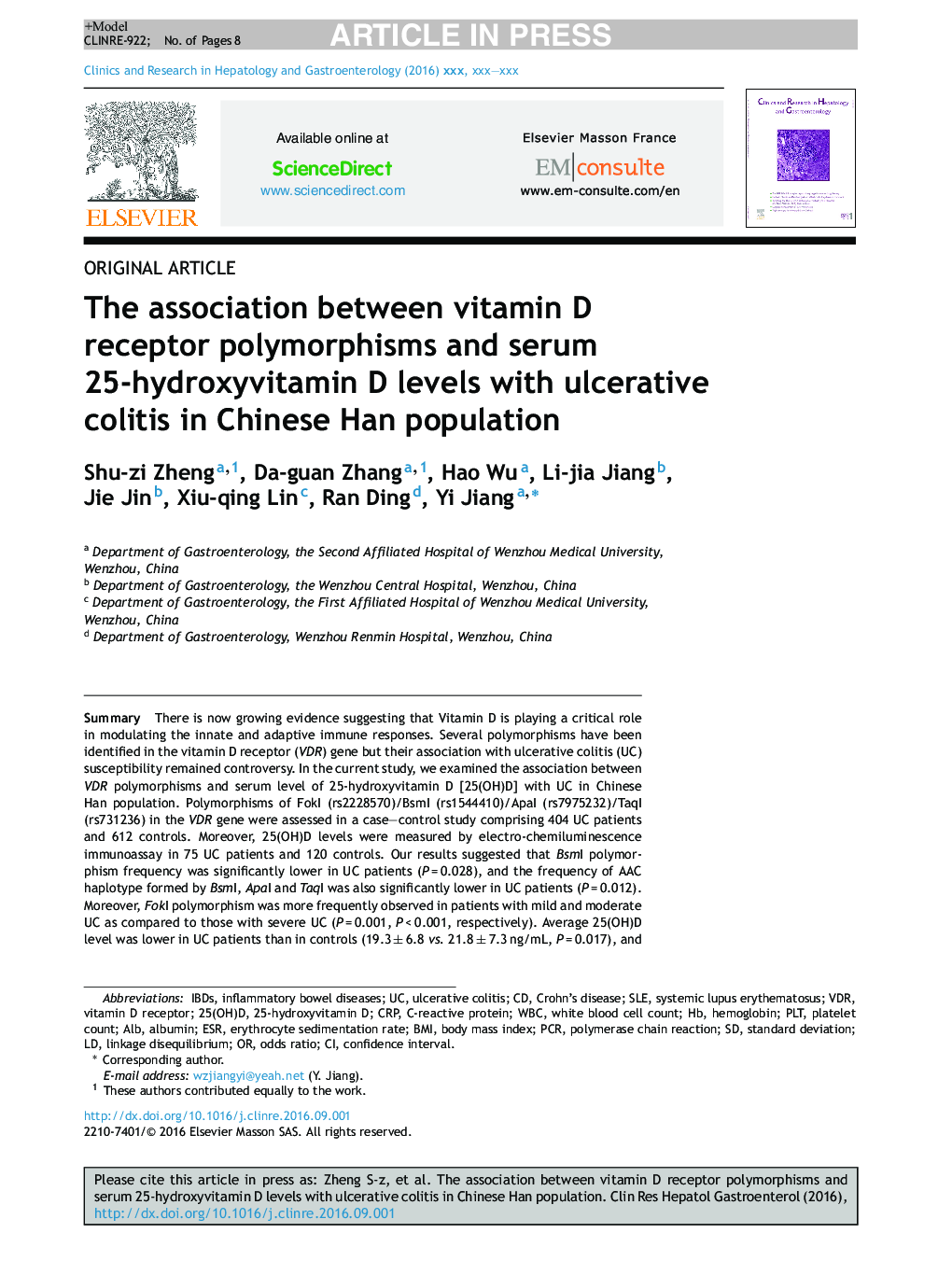| Article ID | Journal | Published Year | Pages | File Type |
|---|---|---|---|---|
| 5657903 | Clinics and Research in Hepatology and Gastroenterology | 2017 | 8 Pages |
Abstract
There is now growing evidence suggesting that Vitamin D is playing a critical role in modulating the innate and adaptive immune responses. Several polymorphisms have been identified in the vitamin D receptor (VDR) gene but their association with ulcerative colitis (UC) susceptibility remained controversy. In the current study, we examined the association between VDR polymorphisms and serum level of 25-hydroxyvitamin D [25(OH)D] with UC in Chinese Han population. Polymorphisms of FokI (rs2228570)/BsmI (rs1544410)/ApaI (rs7975232)/TaqI (rs731236) in the VDR gene were assessed in a case-control study comprising 404 UC patients and 612 controls. Moreover, 25(OH)D levels were measured by electro-chemiluminescence immunoassay in 75 UC patients and 120 controls. Our results suggested that BsmI polymorphism frequency was significantly lower in UC patients (P = 0.028), and the frequency of AAC haplotype formed by BsmI, ApaI and TaqI was also significantly lower in UC patients (P = 0.012). Moreover, FokI polymorphism was more frequently observed in patients with mild and moderate UC as compared to those with severe UC (P = 0.001, P < 0.001, respectively). Average 25(OH)D level was lower in UC patients than in controls (19.3 ± 6.8 vs. 21.8 ± 7.3 ng/mL, P = 0.017), and was significantly correlated with hemoglobin (β = 0.49, P < 0.001), C-reactive protein (β = â0.36, P < 0.001), severity of UC (β = â0.21, P = 0.025) and FokI polymorphism (β = â0.20, P = 0.031) in UC patients. Interestingly, there was a significant correlation between FokI polymorphism and vitamin D deficiency (<20 ng/mL) in UC patients (P = 0.006). Together, these results supported that VDR polymorphisms and 25(OH)D level were significantly correlated with UC risk and severity in Chinese Han population.
Keywords
IBDSVDRPLTESRALBWBC25(OH)D25-hydroxyvitamin DAlbuminstandard deviationinflammatory bowel diseasesCrohn's diseaseerythrocyte sedimentation ratebody mass indexBMIPlatelet countWhite blood cell countLinkage disequilibriumconfidence intervalSystemic lupus erythematosusSLEodds ratioHemoglobinpolymerase chain reactionPCRC-reactive proteinCRPUlcerative colitisVitamin D receptor
Related Topics
Health Sciences
Medicine and Dentistry
Gastroenterology
Authors
Shu-zi Zheng, Da-guan Zhang, Hao Wu, Li-jia Jiang, Jie Jin, Xiu-qing Lin, Ran Ding, Yi Jiang,
